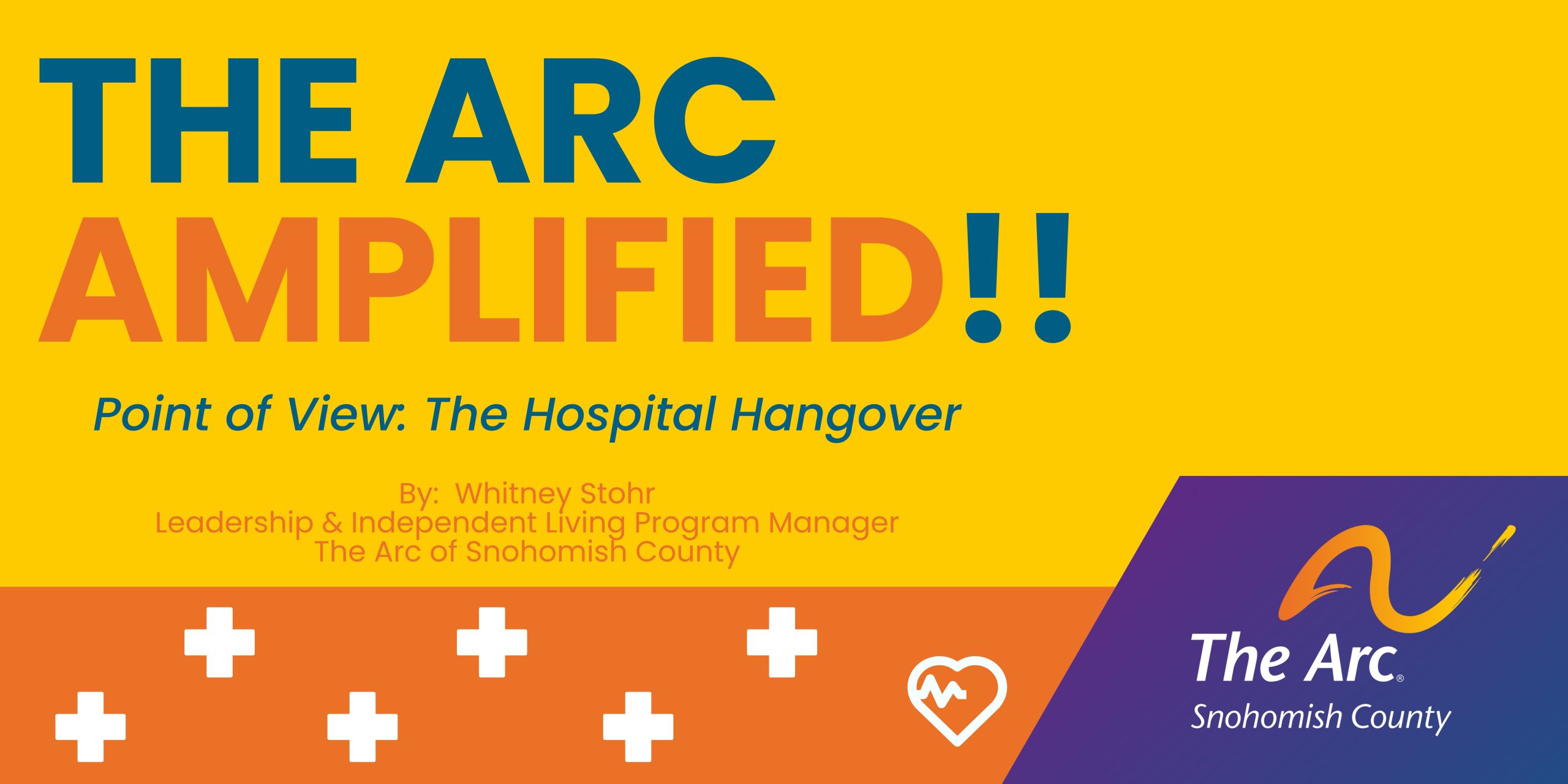
Point of View: The Hospital Hangover
The “hospital hangover.”
It’s totally a thing.
If you are a parent or family medical-caregiver, you know it is a thing.
It is the day after you get home from a hospitalization with your child. You wake up with all the tell-tale signs of a long night out, minus the good stories and, of course, lacking the after-glow of a well-deserved evening of fun with friends.
You feel like you were hit by a bus… or a train… or maybe even two trains, depending on the exact particulars of the recent stay.
You are tired and groggy. Your joints ache and your movements bear an awfully closely resemblance to a snail trekking through a mountain of pudding. Your memory is fuzzy, and you keep forgetting the day of the week. Greasy, comfort food sounds delightfully tasty.
You look around, and your house is an absolute disaster. There are piles of unwashed clothes strewn across the room. Unpacked duffels sit next to garbage bags filled to overflow with random boxes of half-used rubber gloves and syringe singles. Sure, it might feel like an extremely odd hangover, but a hangover nonetheless.
It is a unique type of hangover.
It is the hospital hangover.
It lasts a day, maybe two; possibly the whole weekend following an admission.
You may even experience a surprise hospital hangover the morning after a day-surgery or even a particularly long afternoon of back-to-back clinics. (I am convinced that those surprise hangovers are correlated directly to the stress of surgery and/or marathon appointments. The absence of an overnight stay does not necessarily detract from the hallmark brain-fog of the morning-after experience.)
I shared once on my family’s Instagram account @rollin.w.spinabifida about my personal struggle-bus with the hospital hangover. I knew it had to be a thing and was quickly validated in that belief by dozens of messages from other parent caregivers. My fellow medical moms and dads jumped into my DMs with their shared experience of that dreaded hangover.
Moral of the story: If you are a parent or family caregiver who wakes up the morning after a hospital discharge wondering if a large pine tree may have dislodged itself from the ground in the middle of the night and crashed right through the roof of your home to land squarely on top of you while you slept (probably not soundly) in bed… you are sooo not alone in that feeling.
You are among friends here in the world of disability and medically-complex parenting.
And, like any other hangover, the miracle “cure” is unique to the individual.
What works for me?
A slow morning-after with A LOT of coffee. I need time to re-acclimate. To breathe deeply. Even if the hospitalization was a single night, a single night is all it takes to ignite all the symptoms of a raging, migraine-inducing hangover. I desperately need those morning hours to reset my headspace.
I ignore the mess. Yes, there are bags to unpack. There is a pile of hospital laundry to wash. There are medical supplies and equipment to put away. I am behind on work. My house needs to be cleaned. There is more “stuff” loaded in the back seat of our family car. Whatever…. That is a problem for an undefined “later” part of the day.
I take a walk, and then another. A long, morning walk with a very large mug of hot coffee is usually the first “task” on my post-hospitalization to-do list. The sunshine and fresh air helps me refocus my mind and clarify my thoughts. It gets my body back up and moving in accordance with the rhythms of our regular home life. Often, the first day after a hospital stay is marked by several walks — a long morning march, a lunchtime stroll around the block, and another long afternoon dawdle.
I spend the evening reclaiming my mental space. After bedtime on that first full day home, I unroll my yoga mat and spend time stretching, focusing, breathing. I apply a thick facemask and take a long, steaming shower. Then, I indulge in several of my go-to snack options and binge-watch old episodes of a favorite TV show. Simply, decompressing is the goal.
**********
Whitney Stohr is the Leadership & Independent Living Program Manager at The Arc of Snohomish County. She is passionate about advocating for medically complex children and children with disabilities and their families. She is especially interested in caregiving policy and advocacy. She is a mom and medical caregiver herself, who is energized by working closely with other parent and family caregivers. She lives with her spouse and their four-year-old son Malachi in Lynnwood. Connect with her on Instagram @rollin.w.spinabifida. Contact: whitney@arcsno.org.

